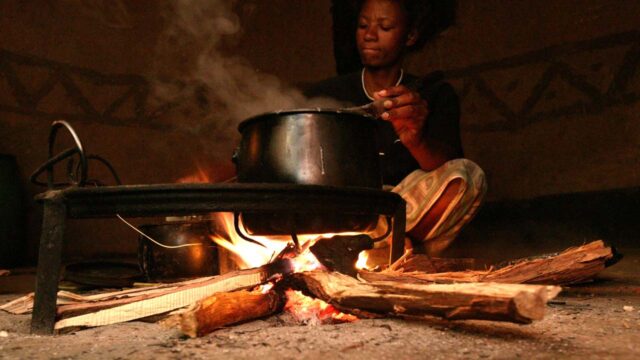
Gift Joseph Okpakorese
There have been massive concerns over the African continent concerning energy evolution, as a majority are observed to engage in the use of crude and obsolete energy despite the presence of modern energy technologies, This trend according to energy experts, has hampered growth and development in the energy sector within the African continent, as an estimated number of 850m people are said to be using polluting fuels.
According to statistical data presented by the African Refiners and Distribution Association (ARDA) and other experts in the Liquefied Petroleum Gas (LPG), they have expressed fears and drawn the attention of the general public to the unhealthy usage of energy, that could, in the long run, cause terrible harm as a result of its negative effects on the health status and lives of individuals.
ARDA, therefore, notified the general populace within the Africa culture to jettison the old and obsolete usage of energy and accept new and contemporary healthy energy as overwhelming evidence has shown that over 850 million Africans still depending on solid fuels (biomass) for cooking.
Officials and experts of ARDA, in a statement during a workshop organized by them, contended that “there is a serious need for strategic efforts towards energy transition, especially for cooking.” They insisted that it is necessary to adhere to and adopt clean cooking fuels, stating that solid fuels may continue to kill over 600,000 Africans yearly due to household air contamination.
Furthermore, It was recommended that prominent industries such as, Global LPG Partnership (GLPGP), World LPG Association, Clean Cooking Alliance, Shell Foundation, and Oryx Energies, who were also in attendance at the seminar, should work out modalities on the need to develop a robust African LPG value chain.
Moreso, commenting on the continent’s thriving civilization, the stakeholders led by Anibor Kragha, the Executive Secretary of ARDA, remarked that there is a necessity for energy evolution in the face of projected growing energy demands.
Kragha further underlined LPG as a reliable and durable solution for lowering carbon emissions against polluting solid fuels, emphasizing the importance of practicing these steps, to avoid the negative effects it would pose on healthy living in Africa and enhance transition into cleaner fuels in line with the UN Sustainable Development Goals (SDGs).
During the ARDA’s seven-part virtual workgroup workshop series, Kragha disclosed that the continent must focus on building partnerships and sharing best practices to enhance a smooth sail of energy transition on the continent.
In his words, “The deployment of the planned Africa LPG Sector Development Fund to finance National LPG ecosystems at country-level will ensure a robust, full value chain approach to drive sustainable investments and accelerate LPG adoption across the continent.”
“An integrated ecosystem approach for deploying sustainable investments across the LPG value chain is essential in Africa’s drive towards world-class per capita consumption of LPG”, he stated at the close of the workshop.”
Meanwhile, Kragha revealed that ARDA, is presently in collaboration with African Union to decrease sulfur content in fuels, and according to him, there are ongoing plans to commence other workshops on storage and distribution, refining and specifications, HSE and quality, human capital, sustainable financing and regulation as a build-up to the annual ARDA conference in October this year which will focus on developing Africa’s downstream energy transition plan.
Kimball Chen, the Chairman/CEO of GLPGP, who also commented on the current situation, said at the meeting that, “LPG for Clean Cooking in Africa remains a priority issue for the international community – governments and various institutions – as well as private sector capital providers as evidenced by recent LPG feasibility studies in DRC, Kenya Rwanda, Sierra Leone, and Uganda.”
In addition, the Global Head, Oil & Gas Coverage at Standard Bank, Dele Kuti, said there was the need to ensure an enabling environment for financing of LPG projects, stressing that population growth, new product lines, and the drive for cleaner energy supply in the future, will make LPG investments a viable option.







